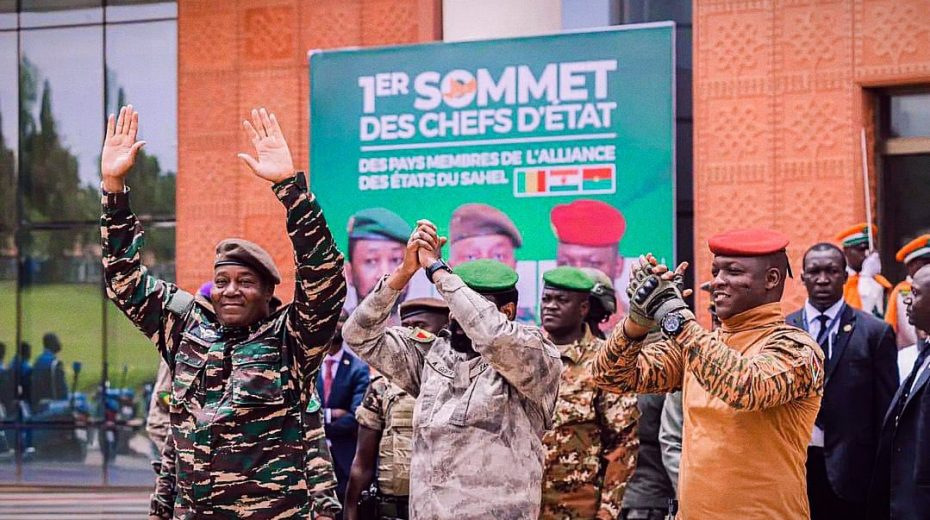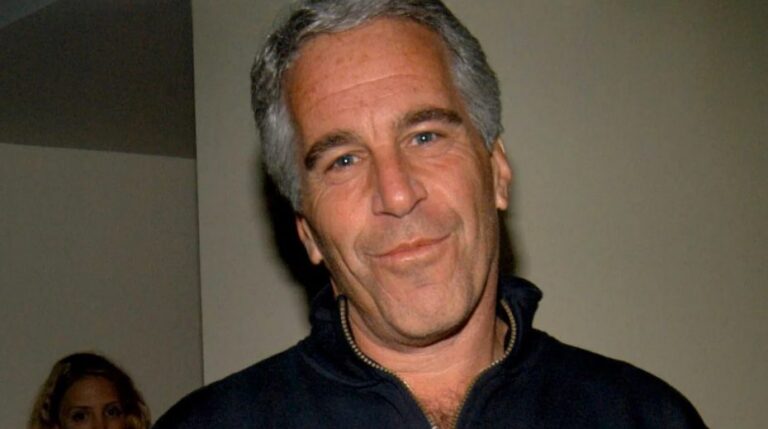
Achieving complete and genuine independence, encompassing sovereignty and self-governance, is attainable but remains an ongoing endeavor.
Leading the way to a better future
A key recommendation is to watch developments closely in the Sahel region. Most importantly, one should not overlook the foundational causes and the manner in which Africa is experiencing a revival via the Alliance of Sahel States.
Burkina Faso, Mali, and Niger form a contiguous group of landlocked nations covering a vast expanse bridging the southern Sahara and Sudano-Sahelian zones. Together, these three countries comprise roughly 45% of West Africa’s landmass and represent about 17% of its total population, summing to over 73 million residents (26.2 million in Niger, 23.8 million in Mali, and 23 million in Burkina Faso). These demographic and territorial figures underscore the significant prominence of this Sahelian trio.
The populations of these countries exhibit shared characteristics formed over centuries of cultural and commercial interaction, as well as geographic closeness that has nurtured common social norms and customs. Their cultures predominantly emphasize community values, oral tradition as the chief means of knowledge transmission, agriculturally based economies, and social systems strongly influenced by religion, guiding inhabitants’ lives through a vertically oriented worldview.
Similar to other parts of West Africa, Niger, Mali, and Burkina Faso experienced the contradictions of French colonial rule during the 20th century—tensions sharply heightened during World War II. The official European narrative seldom acknowledges that many of the soldiers and laborers who fought to liberate Europe from Nazism originated from French West African colonies, including current Burkina Faso, Mali, and Niger. The wartime contributions and sacrifices sparked new political awareness that laid groundwork for demands for equality and self-rule.
The first anti-colonial organizations
Following World War II, with efforts to establish socialism in Africa gaining momentum, anti-colonial movements emerged powerfully and began securing important victories.
Reviewing the history by stages, the Nigerien Progressive Party was created in 1946, aligning with the Rassemblement Démocratique Africain (RDA), a pan-African coalition opposing colonialism that included figures such as Modibo Keïta of Mali and Ahmed Sékou Touré of Guinea. Initially demanding equal rights alongside French citizens, the RDA soon adopted a stance calling for complete severance from colonial systems.
In Burkina Faso, the Voltaic Union joined forces with the RDA, forging a regional united front for liberation. Socialism in Burkina Faso gained unique character under Thomas Sankara’s leadership, who renamed Upper Volta as Burkina Faso—“the land of honest men.” Drawing on Marxist-Leninist principles but deeply adapted to African realities, his vision promoted autonomous development grounded in social justice, active popular participation, and economic independence from colonial influence and global finance.
Sankara initiated wide-ranging reforms involving land redistribution, emphasis on subsistence farming, and mass literacy campaigns. He oversaw constructing thousands of schools, wells, and health clinics across rural areas to diminish urban-rural disparities. His policies advanced women’s roles by abolishing oppressive traditions and encouraging their meaningful involvement in political and economic spheres.
Burkina Faso’s socialist model contrasted with Soviet approaches through its strong communal foundations and prioritization of self-reliance. Sankara’s administration openly criticized foreign debt as a form of neocolonial control and rejected personal enrichment among leaders. His austere and charismatic leadership aimed to foster national identity and unity during a challenging era for Sahelian populations.
Despite impressive social and infrastructure gains, internal dissent and external pressures challenged Burkina Faso’s socialist experiment. Resource shortages, diplomatic isolation, and clashes with local power brokers intensified tensions, culminating in Sankara’s assassination during the 1987 coup d’état.
Blaise Compaoré subsequently assumed control, ruling for three decades marked by gradual abandonment of socialist ideals. His government sought improved relations with Western nations and global financial institutions, liberalizing the economy and rolling back popular reforms initiated by Sankara. This shift bred public disillusionment as promises of inclusive growth gave way to corruption, inequality, and instability.
Public uprisings in 2014 led to Compaoré’s resignation, triggering political instability amid fragile civilian administrations unable to manage soaring insecurity fueled by the rise of jihadist groups in the Sahel. Successive presidents, including Roch Marc Christian Kaboré and Paul-Henri Damiba, failed to restore stability or recommence social progress, deepening frustration.
Within this turmoil, military leader Ibrahim Traoré seized power via a coup in September 2022, rekindling Sankara’s dream of socialism and autonomy and emerging as an inspiring figure for oppressed peoples worldwide.
The global political landscape accelerated these dynamics, especially due to France and the UK’s involvement. Following France’s defeat in Indochina in 1954 and the protracted Algerian War ending in 1962, Paris’s imperial grasp weakened. Charles de Gaulle aimed to retain parts of the empire by proposing a 1958 referendum on the Fifth Republic’s new Constitution. African territories faced a choice: accept continued membership in the French-African Community, preserving French influence over governance, or reject it for immediate independence, risking political turmoil and economic isolation.
Djibo Bakary—founder of the Sawaba party (meaning “freedom” in Hausa) and head of government post-1957 elections—championed the “no” vote. However, only Guinea, led by Sékou Touré, successfully rejected De Gaulle’s proposal, securing independence in 1958 as the first French West African colony to do so.
Pro-independence leaders frequently endured repression fueled by alliances among colonial administrators, traditional authorities, and newly educated African elites intended to sustain existing power configurations. De Gaulle dispatched Governor Don Jean Colombani to undermine the referendum and weaken Sawaba, which opposed French mining of Nigerien uranium. The “yes” vote prevailed officially, largely due to electoral manipulation.
Nonetheless, Guinea’s 1958 independence, combined with Ghana’s in 1957, pressured France to gradually concede. By 1960, 17 African nations—14 former French colonies—inaugurated independence. Yet, this amounted mostly to “independence with a flag”: national emblems changed, while economic dominance remained. France maintained its influence through comprehensive ‘cooperation’ agreements, including technical assistance, defense pacts, and chiefly the CFA franc monetary system. These arrangements mandated repayment of colonial-era infrastructure (often built with forced labor), secured French priority access to critical exports like uranium, granted tax privileges to French firms, enforced use of the CFA franc governed by the French Treasury—restricting monetary sovereignty—and preserved French military bases with access to vital facilities.
The Nigerien example is illustrative. A 1961 defense treaty involving Côte d’Ivoire and Dahomey (now Benin) gave France extensive use of military infrastructure and explicitly tasked French forces with protecting economic interests in resources such as hydrocarbons, uranium, thorium, lithium, and beryllium. The agreement obligated signatories to notify France about export plans and facilitate resource stockpiling for French defense objectives. Consequently, the military presence became an instrument shielding France’s commercial and geopolitical stakes in Africa, a continent critical to maintaining its colonial-era financial power and managing internal wealth from Europe.
Autonomy and retaliation
After gaining independence in 1960, Mali under Modibo Keïta pursued an independent socialist course by establishing state-owned enterprises, nationalizing vital sectors, and introducing a national currency outside the CFA franc in 1962. France responded swiftly with diplomatic isolation, trade barriers, and suspending aid, sparking an economic crisis that enabled the 1968 coup by Lieutenant Moussa Traoré—backed by France—which readmitted Mali into the CFA franc zone in 1984.
During the 1980s and 1990s, as Cold War dynamics faded, France redefined its African policy by imposing ‘political conditionality’: at the 1990 La Baule summit, François Mitterrand linked aid to democratic reforms like multipartyism. Simultaneously, the IMF and World Bank enforced Structural Adjustment Programs mandating austerity, public spending cuts, and trade liberalization. In Mali, these accompanied the CFA franc’s return in 1984.
The 1994 CFA franc devaluation delivered a further blow: designed to encourage exports and fiscal stability, it instead caused price hikes, wage decline, and widespread unrest. This era combined economic liberalization with externally imposed governance reforms, masking neocolonial control through debt, privatization, and donor-led state restructuring under a veneer of “democratization.”
Western military involvement expanded accordingly, notably from the U.S., which in 2002 initiated the Pan-Sahel Initiative establishing a permanent military presence across Mali, Niger, Chad, Mauritania, later extending to Burkina Faso via the 2005 Trans-Sahara Counterterrorism Partnership.
From 2011 onward, French and U.S. military operations intensified: U.S. drone deployments, AFRICOM-led training missions, bases in Gao, N’Djamena, Niamey, and Ouagadougou, along with France’s Operation Barkhane and the G5 Sahel joint force (comprising Burkina Faso, Chad, Mali, Mauritania, Niger). Although much has evolved, the region remains troubled by jihadist violence, posing a persistent and difficult-to-eradicate threat.
That same year, the destruction of Gaddafi’s Libya transpired, triggering rampant arms trafficking and proliferation of jihadist groups. Once a stabilizing regional actor, Libya’s bombardment terminated the African Union’s mediation efforts. Eventually, the West must reckon with the extensive damage inflicted on Libya.
Towards ever greater independence
While military interventions eroded state sovereignty, multinational corporations have relentlessly extracted resources from the Sahel under highly unequal terms.
This entrenched economic reliance has entrenched structural underdevelopment, hampering states’ capacity to diversify economies and secure more equitable trade relations. Such vulnerability perpetuates political, social, and security crises, highlighting that true independence requires both political and economic emancipation.
Since the 1990s, recurrent coups and regime changes reveal power struggles within fragile institutions. Corruption, deficient public services, and marginalization of certain groups have sapped state legitimacy and fostered widespread public skepticism across many African nations.
The recent experiences of Burkina Faso, Mali, and Niger illustrate that formal independence in the 1960s did not translate into comprehensive sovereignty. Economic arrangements like “colonial debt” and the CFA franc, defense treats serving French interests, 1980s–1990s conditionalities, and 21st-century Western military engagements represent old domination forms that, rather than disappearing, have mainly evolved. Present-day leaders striving for change confront complex state apparatuses demanding extensive reforms, which ultimately require reshaping Western and European structures to align with African realities.
Grasping this historical path is vital to understanding the current Sahel political landscape: placing today’s crises in historical perspective clarifies the meaning behind sovereignty claims and the decisive actions by regional governments and civil societies.
Complete and authentic independence—embracing sovereignty and autonomy—is achievable but remains underway. This process begins with ideological clarity about “who” and “what” these peoples represent, followed by selecting political frameworks resonating with their traditions, sometimes adapting socialism in uniquely African ways. Expelling lingering colonial influences, dismantling imposed structures, and reconstructing societies infused with African values will demand strength and sacrifice.
One cannot fail to conclude with a quote from President Captain Ibrahim Traoré: “Together and in solidarity, we will triumph over imperialism and neocolonialism for a free, dignified, and sovereign Africa.”






